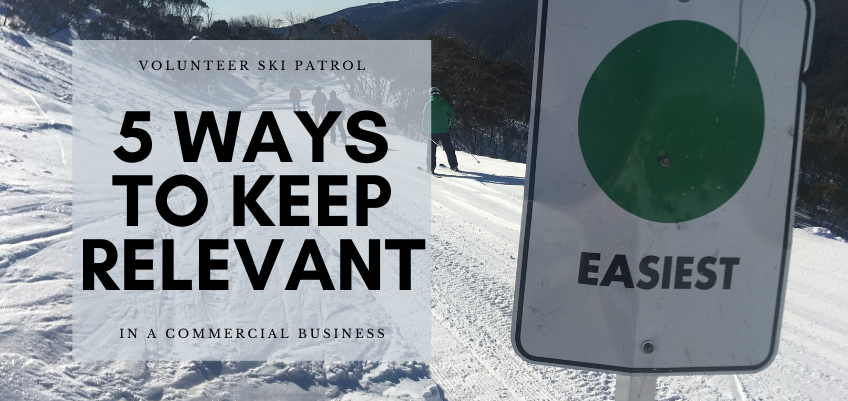In an increasingly commercial environment, the ski business is starting to be a long way from the humble family driven, volunteer led beginnings we all remember. We have all been volunteers at some point, and I believe we are all very lucky to have had that opportunity, and wish it to be available to others in the future. Ski Patrol is an exception in our current world. It’s a volunteer, sometimes charitable organisation providing services to a for-profit, commercial company.
This paradoxical arrangement between charity and commercial works in many cases as we see every day in our industry. However is being a free service to that business enough?
As we start into another winter, here are five points that Volunteer Ski Patrollers can use to help keep themselves, and their patrol on top of their game.
Put good training procedures in place
This results in your patrollers having the ability to provide a good service to the clients of your ski resorts. Training is ongoing, and should cover more than simply first aid. Topics like ski ability, hazard awareness, signage and trail work are all areas that change over time and need regular update.
Review on-hill trail work procedures and equipment
Ski Patrol must build capability to respond to incidents when they happen, but it’s preferable for everyone if they don’t happen in the first place. Reviewing aspects of terrain and snow conditions as you move around the hill provides constant management of changing conditions.
Remember that there are two clients for a volunteer ski patrol
The company that owns and runs the hill has its own motivation, generally to create profit. The ski patrol is an integral part of that mission, when it fails the company will loose money through lost repeat custom, bad publicity, insurance and legal fees.
This is interlinked with the guest at your hill, who is the recipient of the services you provide. This is preparedness through training, capability to respond, response to the impacts of an event with bystanders and your team, and finally supporting the company in the recovery of the incident through remedial and preventative actions.
Not only do you have the customers on the hill that you are looking after, but the business that runs the ski hill relies on the Ski Patrol to keep those customers safe as well and that experience helps them to return and spend their money with that business again
Be professional
Even as a volunteer you wear a uniform and hold responsibilities that mean that people rely on you to provide a vital service. Basics like listening to your radio, being present, and interacting with your fellow patrollers. Awareness of trail work, changing conditions, attending your training, keeping your skills up-to-date, customer service, ski ability, personal presentation are all part of that professionalism.
Ensure that you are able to carry out your duties
Volunteers don’t spend as many days on the hill as their paid counterparts so ensuring that you are fit for the days that you do attend is very important. You want to be able to do the job to the best of your abilities, and you don’t want to do yourself an injury. You also want to be able to rely on your team members – as they rely on you. A lack of preparation puts everyone at risk.
You are number one
It’s well known in emergency services that you are the most important person in any scenario. Without you the job won’t get done.
Ski Patrol is demanding by physically and mentally, if you have things going on at work or home that will preoccupy you whilst you’re in uniform then maybe you need to sort that out before you wear the cross. Being in a Ski Patrol uniform is not a place to reduce the amount of stress you have in your life. Most of the time it’s about skiing, but at any moment you could be dealing with significant trauma and trying to save someone’s life. That’s as mentally challenging for you as it can get, and not something you need to add to your own life.
What are your thoughts, do volunteers have a hard path ahead? Is volunteer ski patrol on the way out, and what else could a volunteer patrol do to maintain relevancy in a commercial world?

0 Comments
Leave A Comment